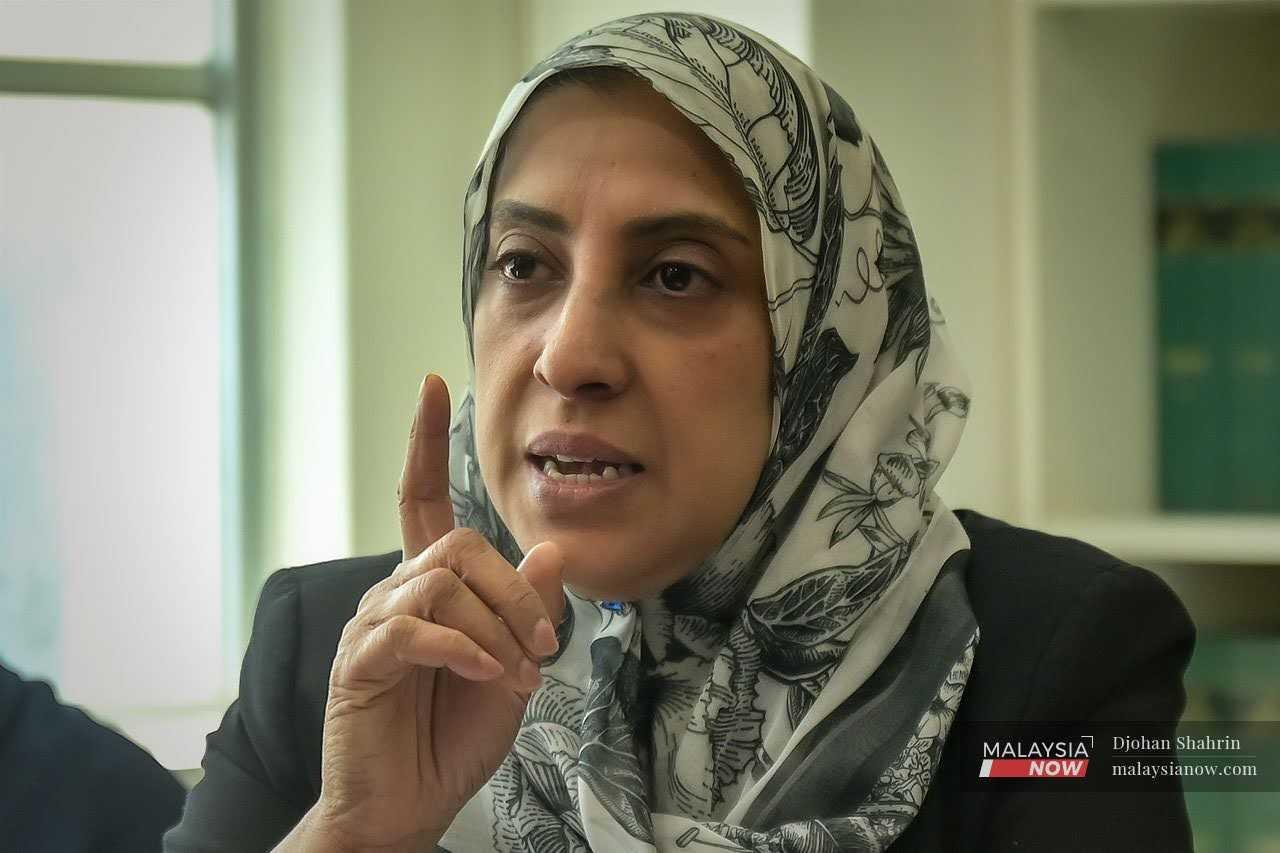New mufti bill unconstitutional, undermines Agong and harms Muslims through government control, says Latheefa
The rights lawyer and former MACC chief urged MPs to overwhelmingly reject the Mufti (Federal Territories) Bill.
Just In
Lawyer Latheefa Koya has come out strongly against a proposed bill governing the office of Federal Territories mufti, saying it would grant far-reaching powers to an unelected official appointed by a minister while dictating the lives of Muslims and how they should practise the Islamic faith.
Latheefa urged MPs debating the Mufti (Federal Territories) Bill 2024 in the Dewan Rakyat next week to overwhelmingly reject it, and slammed ruling MPs for remaining silent on the issue more than three months after the bill was first tabled in July.
"In this regard, the silence and timidity of the DAP and Sabah and Sarawak MPs on this bill is greatly disappointing. I urge them to act for the good of the people and to uphold the Constitution as they have sworn to do."
Agong undermined
Latheefa said the bill effectively creates "two chief authorities" for Islamic affairs in the federal territories, a mufti in addition to the Yang di-Pertuan Agong, who is the constitutional head of Islam as well as the federal territories and states without a sultan.
She said by making the mufti the highest authority "next to the Agong", the bill "derogates from the position of the Agong as the head of Islam in Malaysia" as stipulated in Articles 3(5) and 34(1) of the Federal Constitution.
"The mufti is appointed upon advice of the minister, and therefore the federal government will obtain wide power and authority over every aspect of the religious practices of Muslims in this country once the Bill is law.
"This is not the role envisaged for the federal government under our constitution. It is against the basic structure of our constitution and thus unconstitutional," Latheefa, a rights lawyer who is also former chief commissioner of the Malaysian Anti-Corruption Commission, said in a statement.
The bill, which is promoted by religious affairs minister Mohd Na'im Mokhtar touches on the role of the FT mufti, the structure of the fatwa committee, as well as committees on astronomy, the sighting of the moon to determine the Islamic calendar and prayer direction (qiblah) among others.
Latheefa said the bill gives unprecedented jurisdiction to fatwas issued by the FT mufti as they would be binding on every Muslim.
"There is no exception or qualification," she said, adding that in contrast, current FT Islamic laws exempt fatwa in matters of personal observance, belief or opinion.
"The edict of a mufti under the proposed Bill is iron-clad and immutable," she added.
Unprecedented powers to control Muslims
She warned that the bill could expand the list of shariah offences under the FT "to cover almost every aspect of a Muslim’s social, economic and political life".
"In other words, any fatwa on any aspect made by the mufti can potentially give rise to an offence under the Syariah Criminal Offences (FT) Act 1997.
"Thus, the bill will lead to the unfettered increase of the types or categories of offences enforceable against Muslims."
The bill, Latheefa said, will "give power to the government through the mufti to control or police every aspect of the life of Muslims in this country", including on matters of dress and food.
"No government should have such powers over its people in a democracy, purportedly under the guise of religion."
She said the bill allows the mufti to issue fatwas on his own initiative.
"This is a blank cheque given to the mufti, who is an unelected official, to govern and direct the lives of Muslims."
Latheefa also questioned the provision for a Muslim representative of the Attorney General’s Chambers (AGC) to sit on the fatwa committee, saying that it is against Article 8 of the Constitution for religious preferences to apply to such positions involving AGC.
"It is also plainly absurd, as the Bill itself will be debated and voted upon by non-Muslims MPs in the Dewan Rakyat as well as Muslim MPs."
Subscribe to our newsletter
To be updated with all the latest news and analyses daily.
